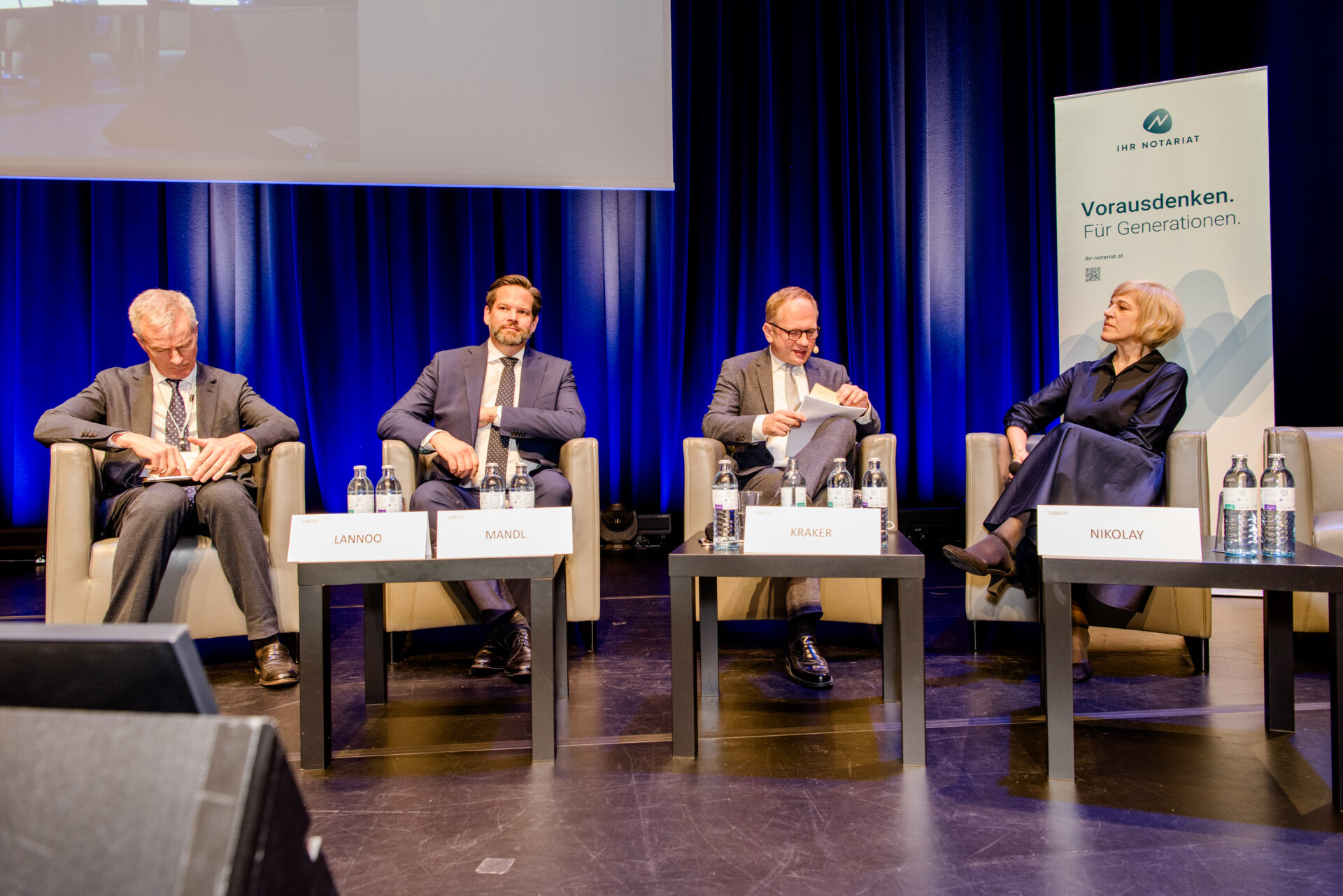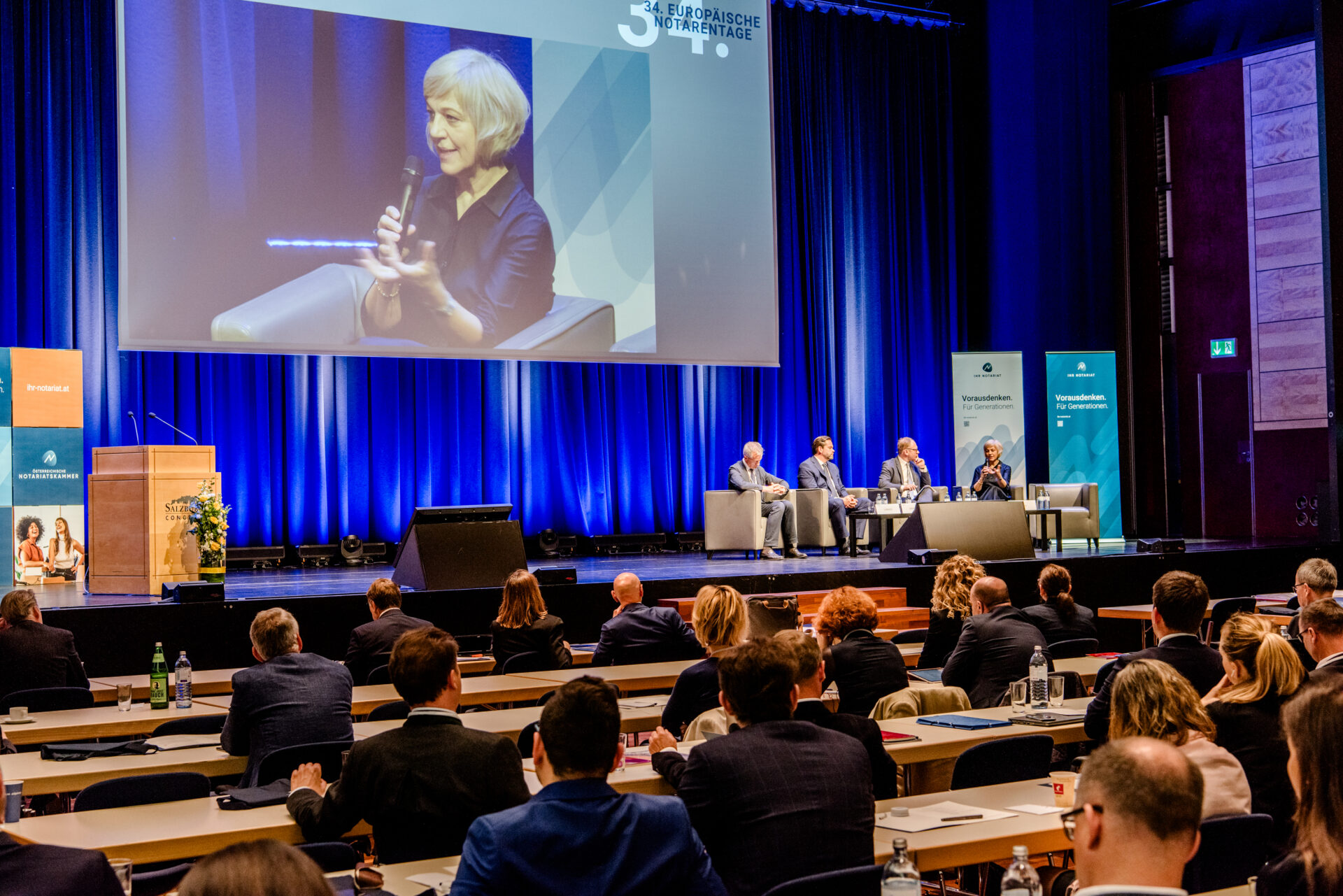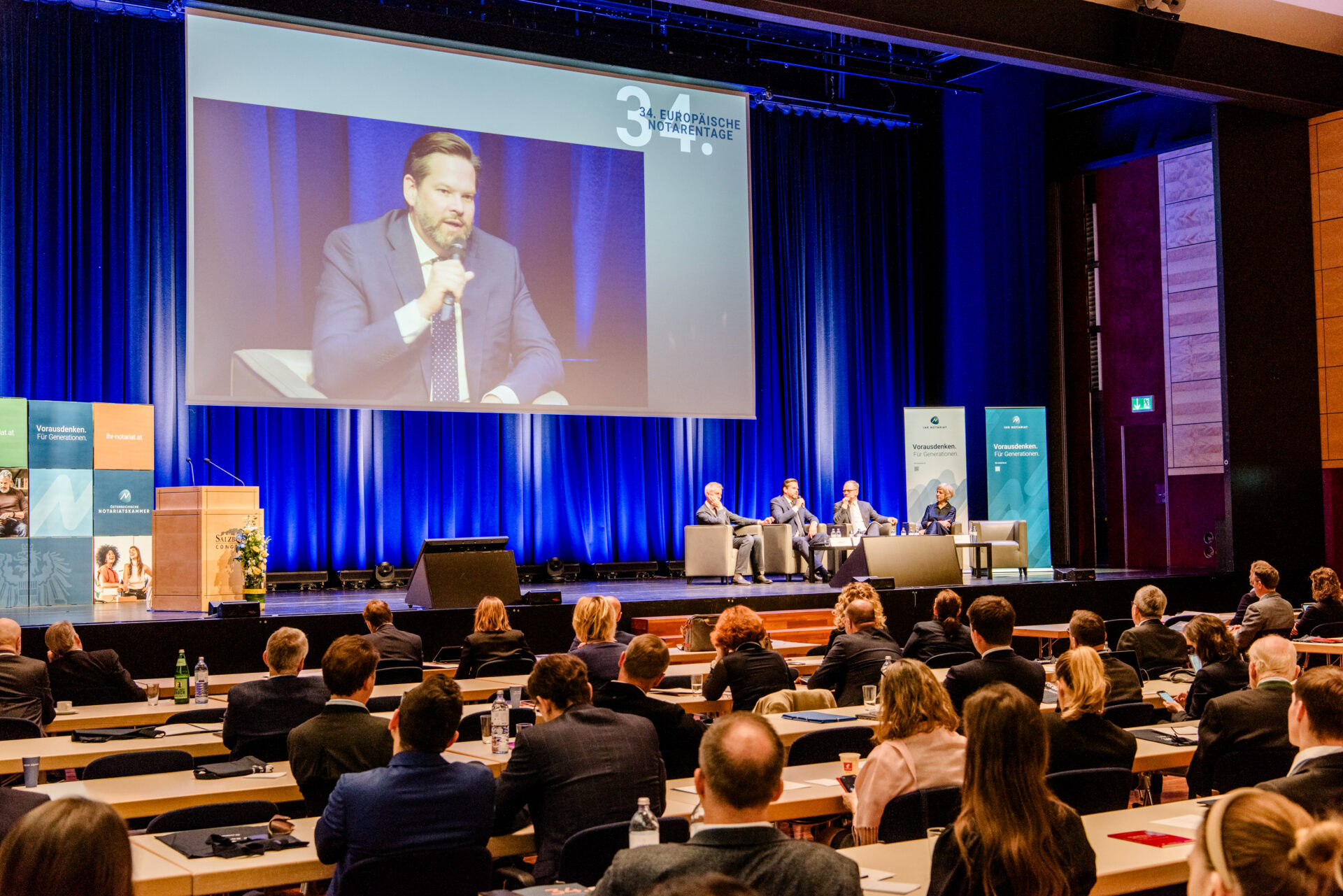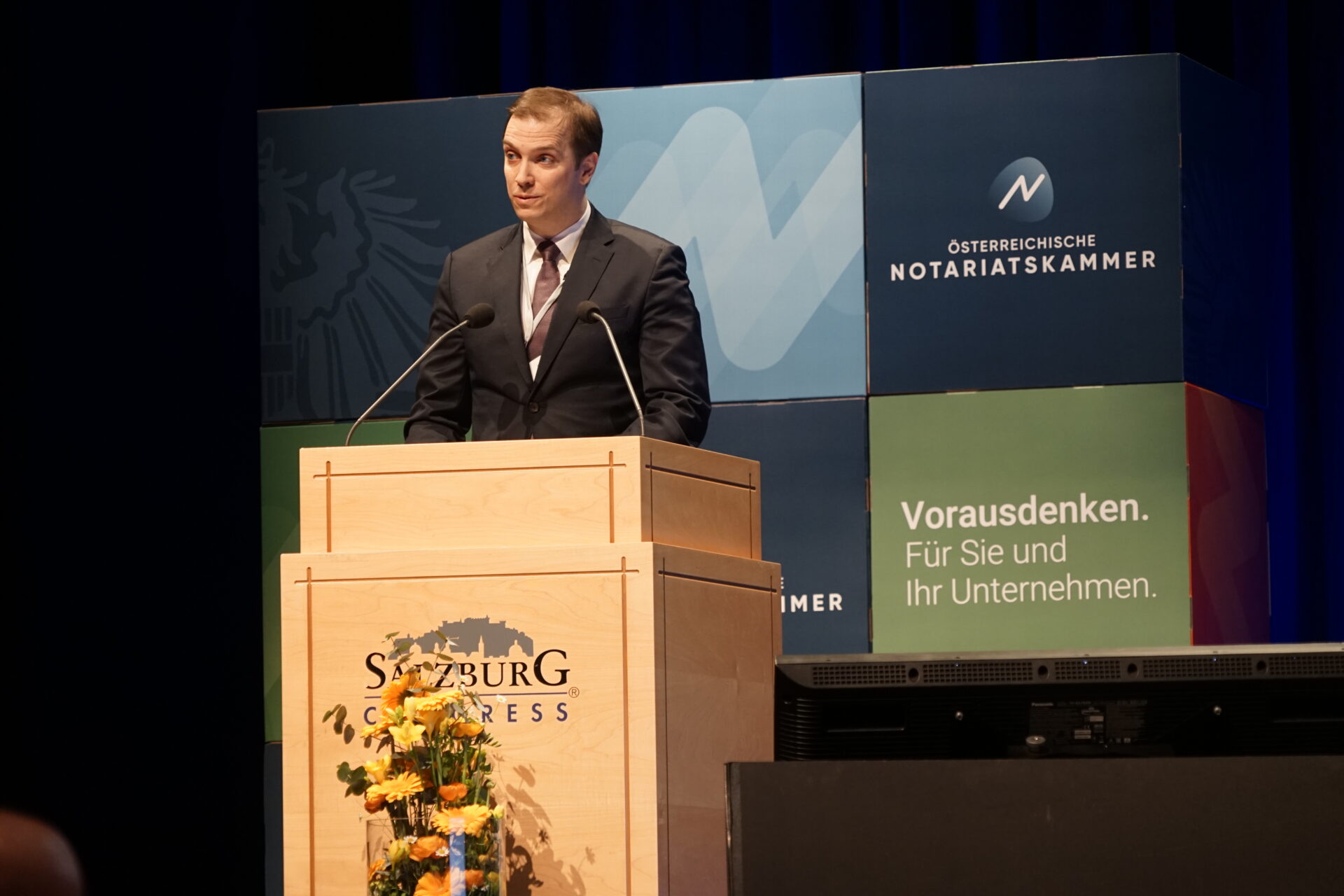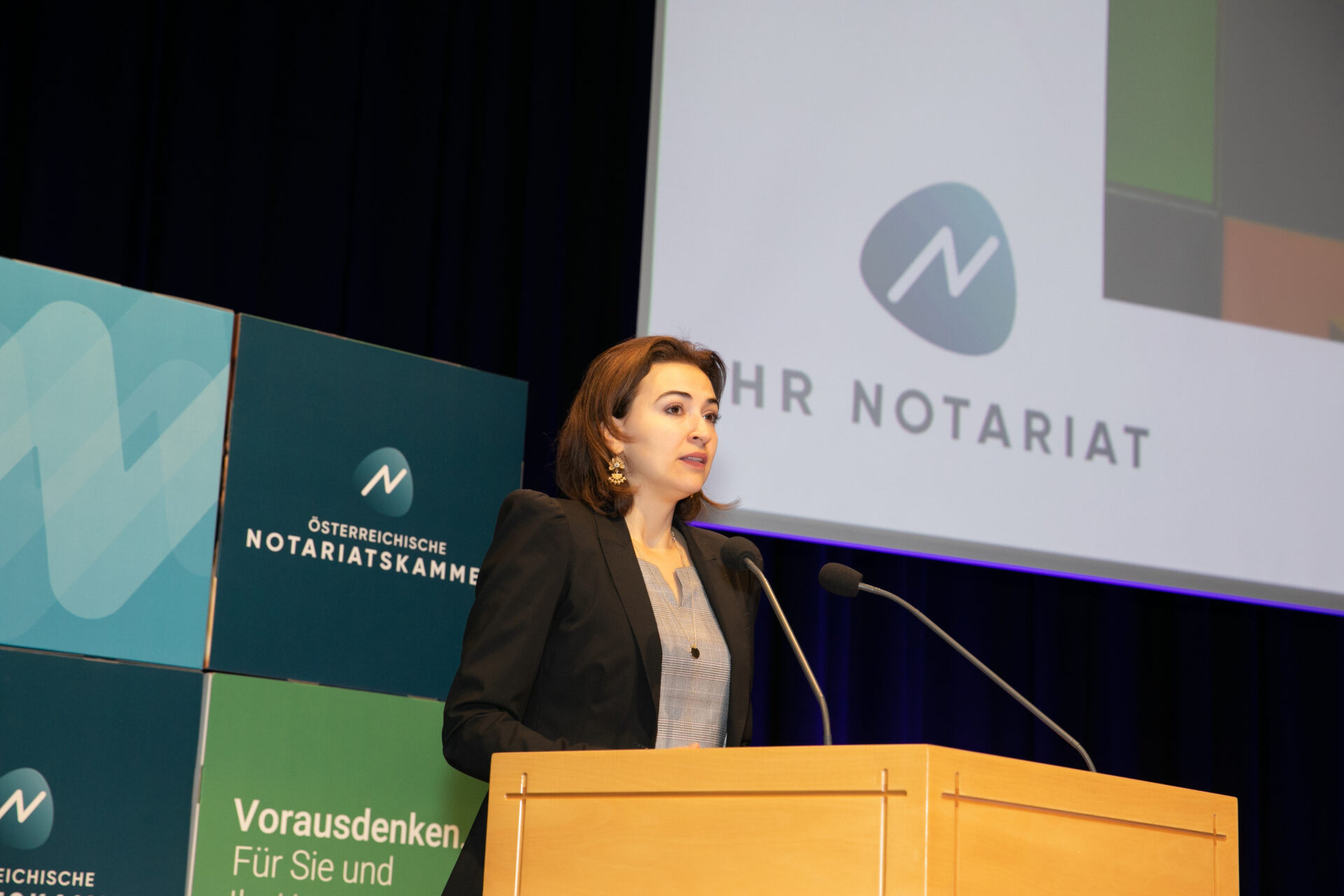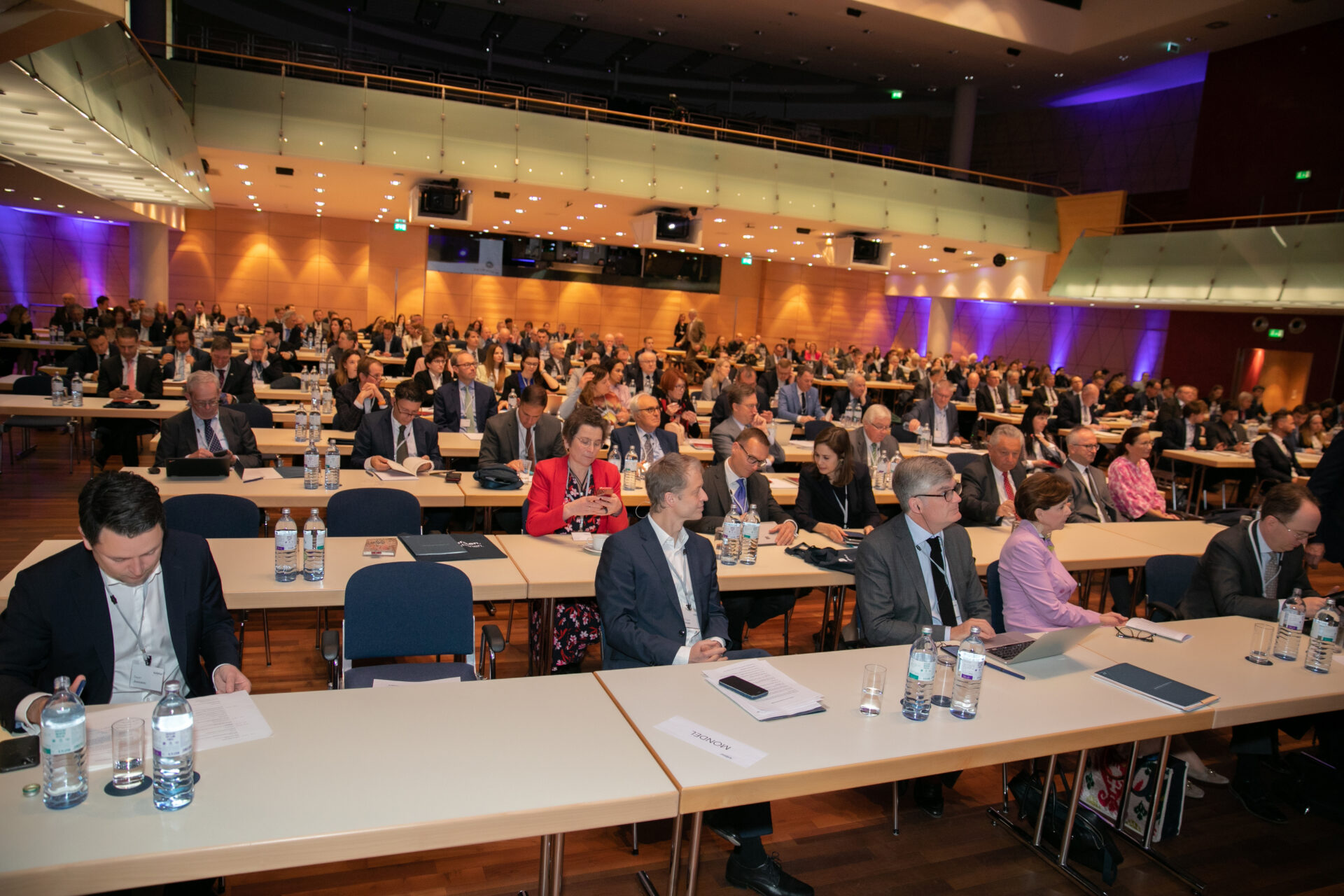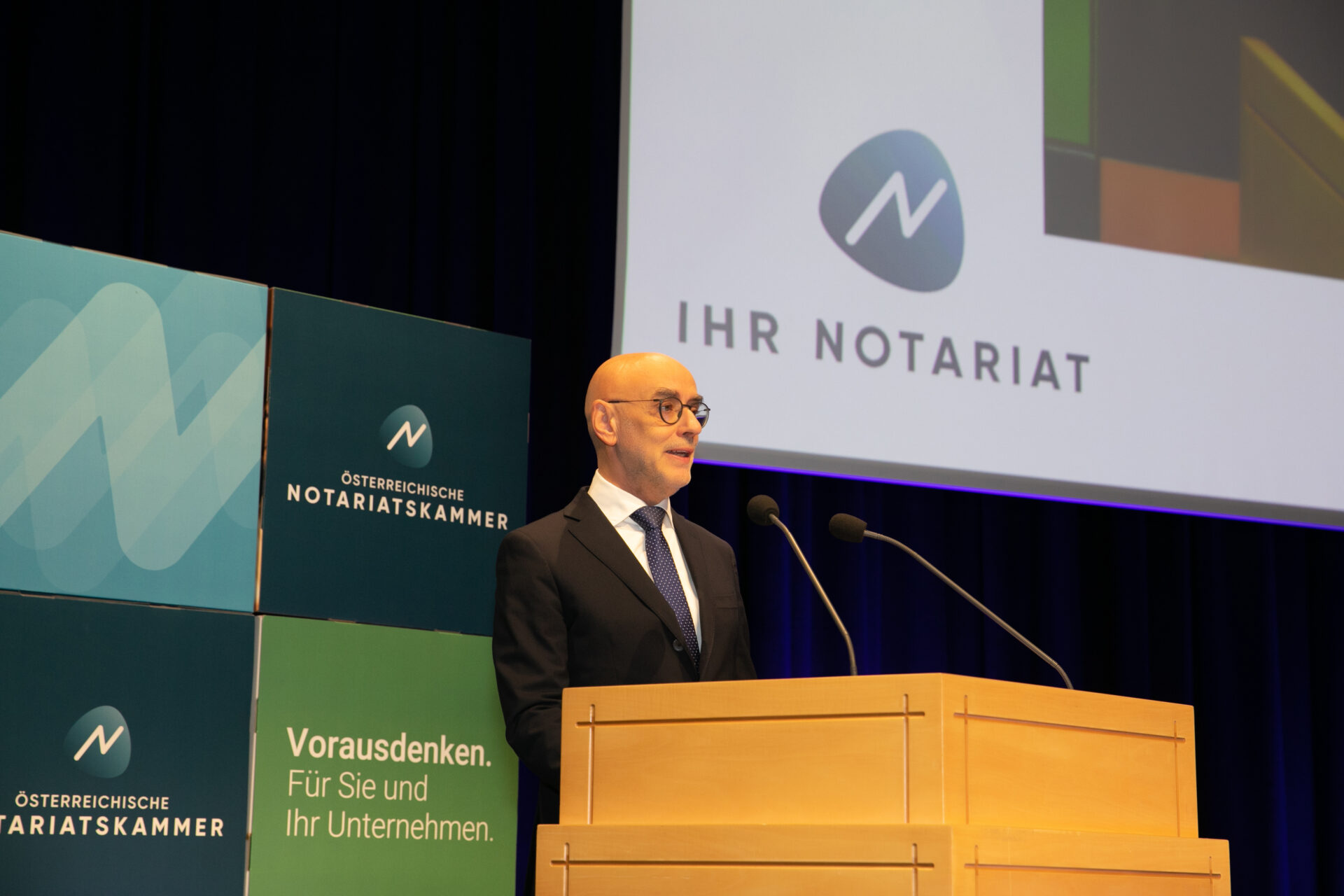News CNUE, 9 December 2024
Concepción Barrio elected President of the Spanish Notariat
–
On 30 November 2024, the Dean of the Madrid Notarial Association, Concepción Pilar Barrio del Olmo, was elected President of the Spanish General Council of Notaries for the next four years. Barrio thus becomes the first woman to hold this position and now represents, at both national and international levels, nearly 3,000 Spanish practising notaries. She succeeds José Ángel Martínez Sanchiz, who has led the organisation for the past eight years.
The new President has identified her main objective as “the maintenance of our system of legal certainty, with all its values and duties, because it benefits the society we serve. We notaries must continue to ensure that whoever buys a house does not end up in court; that people’s last wishes, expressed in their wills, are respected; and that no one questions the type of marriage we have chosen or the company we have founded.”
The main social challenges that notaries can help address include “helping to solve issues such as unwanted loneliness, access to housing, or legal support for the most vulnerable groups. At the same time, we must continue the process of digitalisation to provide a more efficient notarial service without compromising our relationship with citizens. We will continue to offer the network of notaries’ offices spread throughout Spain, even in small towns.”
She also highlights her responsibility to women in assuming this position, saying, “It is important that other women, especially young women, see that they can be a dean or chairperson of an institution like this or of a company; that they have no limits. When I passed the competitive examination, women made up 30 per cent, but recently, it has reached 60 per cent,” she concludes.
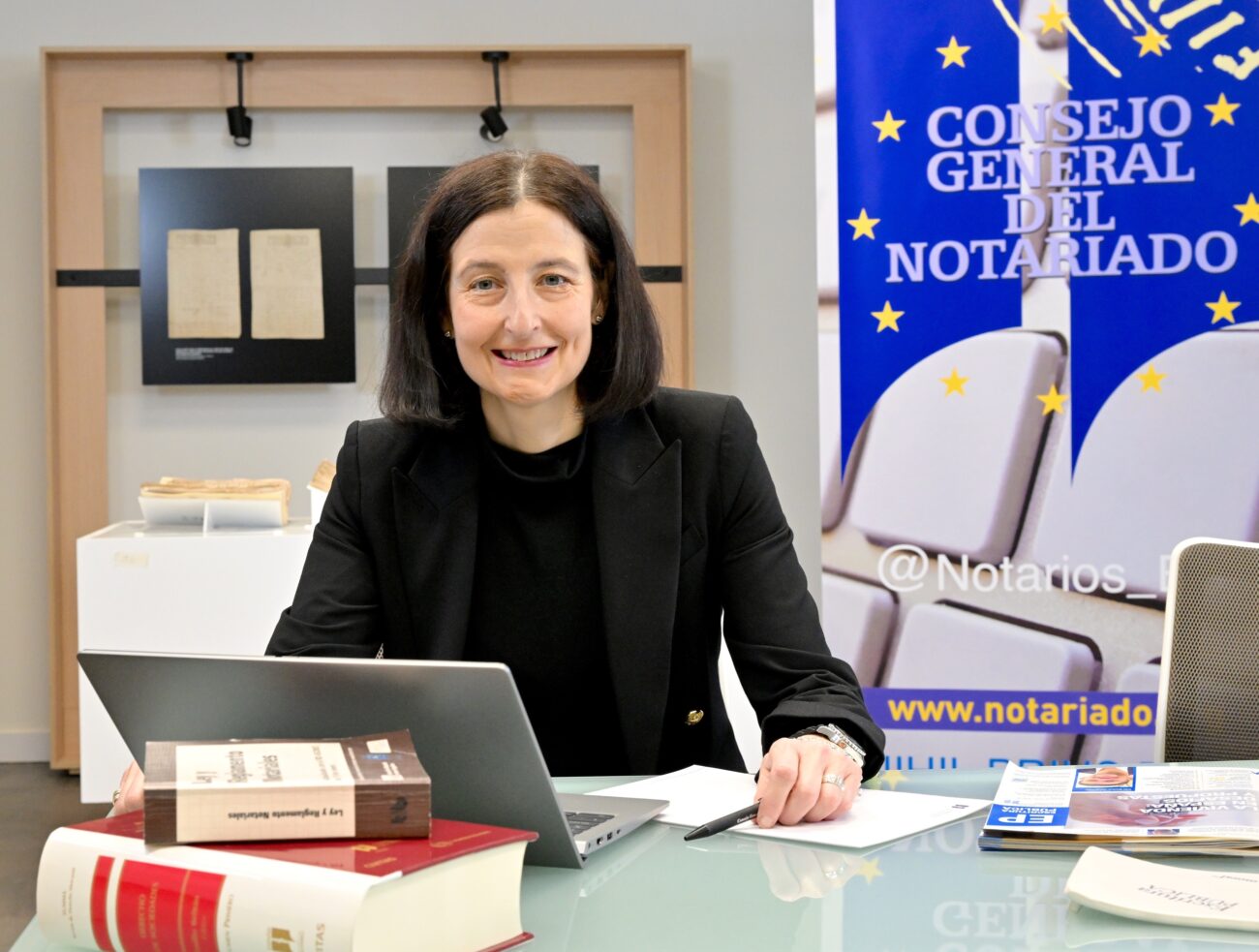
Concepción Pilar Barrio del Olmo has been a notary since 1997. She has extensive corporate experience, both in the Madrid Notarial Association, where she has held the position of Archivist since 2007 and has served in various roles before being elected Dean, and in the General Council of Notaries, where she served as Secretary General from 2011 to 2013. She is also a trustee and Deputy Chairperson of the SIGNUM Notarial Foundation and a member of the Notary, Women and Society Commission of the Notarial Foundation. Additionally, she is the author of several legal publications and a regular speaker at courses and seminars.
News Members, 22 April 2024
34th Conference of European Civil-Law Notaries – Salzburg, 18-19 April 2024
–
The 34th Conference of European Civil-Law Notaries, organised by the Austrian Chamber of Notaries, was held in Salzburg on 18 and 19 April. High-level speakers from the European Commission, the European Parliament and leading international experts offered their contributions and insights to the 200 participants about the following topic: “Europe’s Digital Decade – Artificial Intelligence and Digital Transformation” .
The CNUE President, Marius Stračkaitis, opened the conference and addressed the pressing matter of artificial intelligence. He mentioned its current use by several European notariats, while reiterating the need for the ultimate decision-making power to remain in the hands of the notaries themselves, which guarantees the preservation of legal certainty.
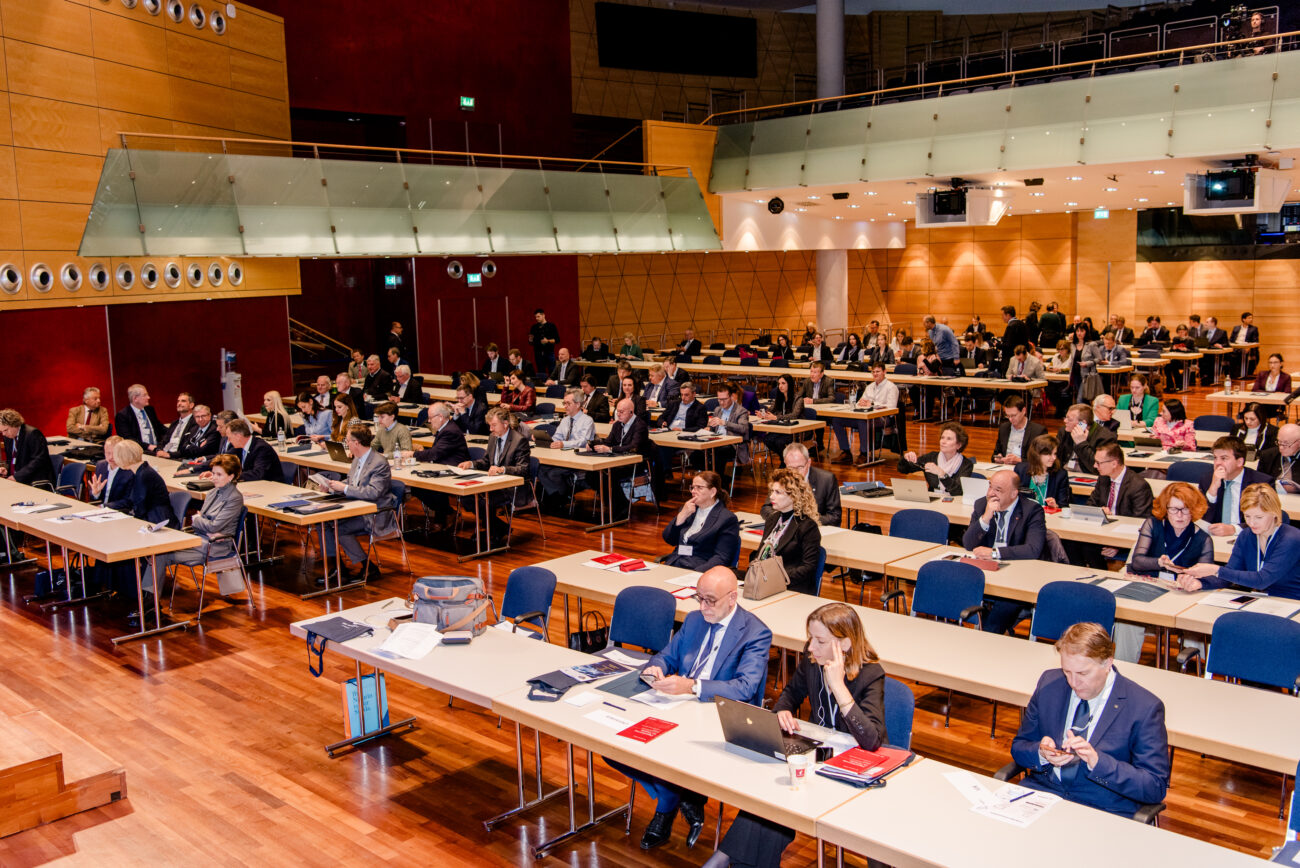
Artificial intelligence was also at the heart of the discussions of the first panel, entitled “Artificial intelligence: The authenticity factor and the rule of law against the backdrop of growing disinformation”, featuring Renate Nikolay Deputy Director-General for Communications, Networks Content & Technology at the European Commission, Karel Lannoo Chief Executive Office at the Centre for European Policy Studies (CEPS) and Lukas Mandl Member of the European Parliament.
In the afternoon, a second panel was devoted to the European Commission’s flagship Digital Decade initiative, which sets ambitious targets for 2030 to ensure Europe’s digital leadership. In addition, a final panel aimed to discuss how these developments affect the European Union’s justice policy when it comes to being relevant to citizens in the context of the digitalisation of judicial cooperation and, in particular, the current initiative on inclusion in the protection of adults. Marie Vautravers, Secretary of the European Judicial Network in Civil and Commercial Matters, European Commission, and Evelyn Regner, Vice-President of the European Parliament, contributed to the discussions.
National News, 25 April 2023
33rd European Notaries’ Days, Salzburg, 20-21 April 2023
–
Under the theme “Notaries going digital – Current practices and future visions for Europe”, more than 150 participants met in Salzburg on 20-21 April for the 33rd European Notaries Days organised by the Austrian Chamber of Notaries. The speakers – academics, notaries and representatives of European and Austrian institutions – discussed the current changes and challenges that digitalisation brings.
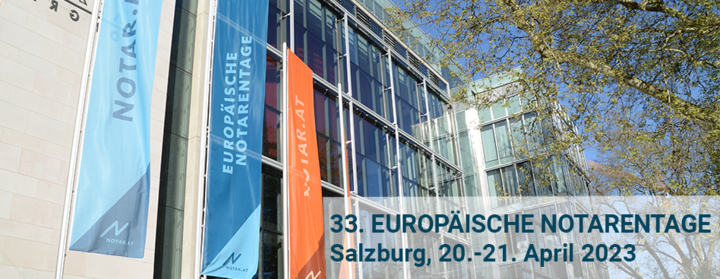
The European Commission’s recent legislative proposal to upgrade the digitalisation of company law was high on the agenda. A panel discussion was organised on this topic with the participation of Ralf Sauer, Deputy Head of Unit “Company Law” of the European Commission.
Alongside personalities such as Alma Zadić, Austrian Federal Minister of Justice, and Michael Umfahrer, President of the Austrian Chamber of Notaries, Peter Stelmaszczyk, President of the CNUE, spoke at the opening of the conference. He particularly addressed the subject of company law.
Peter Stelmaszczyk highlighted the positive aspects of the legislative proposal: more digitalisation, less formalities thanks to the “once only” principle, better interconnection of registers and facilitation of cross-border transactions and procedures, better contribution to the fight against illegal activities and money laundering through the introduction of a mandatory ex-ante control in company law.
He pointed out that the European Commission places notarial control on an equal footing with control by an administrative authority and by the courts. Against this background, he emphasised the gatekeeper role of notaries in company law and their essential contribution to legal certainty and to reliable public registers – the prerequisite for the ease and security of doing business and a significant economic advantage over common law systems. Against that background, Peter Stelmaszczyk cautioned that, where business registers have not yet reached a functionally equivalent level of reliability, safeguards should be discussed in connection with the proposed mutual recognition obligation for register data.
News Members, 28 November 2022
Czech notariat’s online company formation system awarded
–
On 21 November, the system of the Council of Notaries of the Czech Republic for the online creation of business companies won first place in the “eGovernment The Best 2022” competition, in the category of central projects.
EGovernment The Best is a competition that has been organised by the Czech magazine “eGovernment“ for the past 17 years, collecting inspiring projects in the field of public administration digitalisation. In total, more than 40 projects were entered in three categories (municipal, regional and central systems).
The online incorporation system for business companies was launched in September 2021 and has been used by 1,000 companies for their creation or for adjustments to their structure.
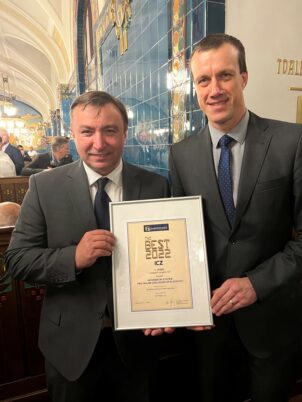
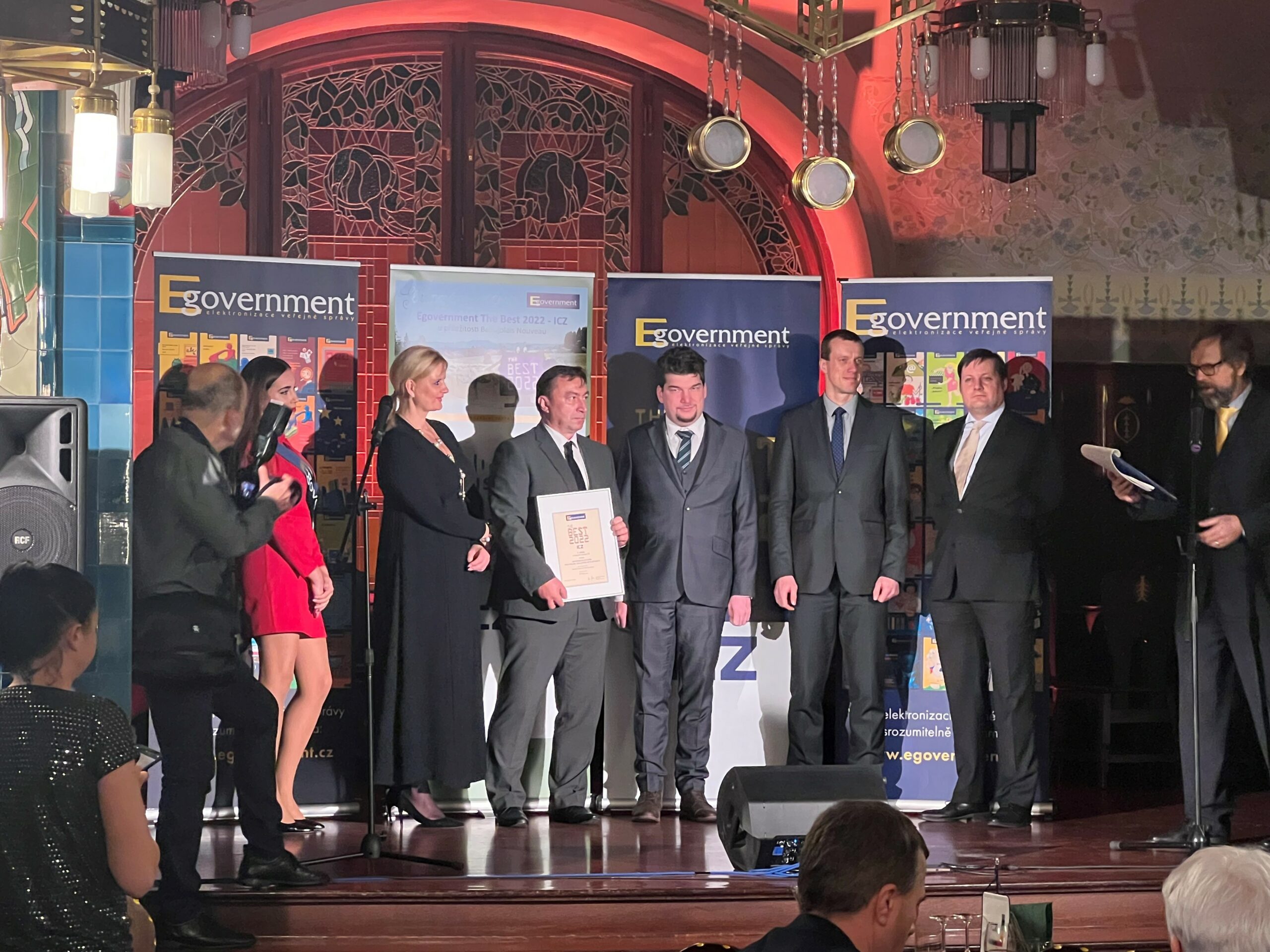
News Members, 19 October 2021
Spain – A gateway to the electronic notariat
–
The Spanish notariat now offers the general public a new web portal, which extends to the whole of society the connection that has existed since 2002 between the more than 2,800 notary’s offices and numerous public bodies: https://www.portalnotarial.es/
Through this portal, individuals and companies can choose the notary they want to carry out various procedures and services, with the same security and guarantees as in notary’s offices, but with the agility of digital operations.
They can also find out which notaries keep the originals of their documents and ask them to “download“ electronic copies, so that they are always at hand. Similarly, they can designate their preferred notary to formalise their mortgage and supervise the documentation given to them by the financial institution, or initiate the preparation of a will with him or her, or ask him or her to carry out the formalities necessary for the incorporation of a company on their behalf. They can even receive advice from the notary via videoconference and in the notary’s office whenever necessary.
This web portal opens up to society the technological potential that notaries have had for 20 years. In fact, the existence of the electronic notary’s office has made it possible, in 2020 alone, to send 8 million electronic copies of notarial acts to the authorities, almost 2.5 million to the registers and land registry, and hundreds of thousands of telematic settlements, certifications or data transmissions, which means a volume of notarial signatures exceeding 20 million.
“These online services are just the beginning of all those that we will be able to add to the portal, pending the necessary legislative reforms“, explained the president of the General Council of Notaries, José Ángel Martínez Sanchiz. “The Portal is a firm commitment on the part of notaries to offer new digital facilities and services to citizens and companies, with the security and guarantees inherent to our function“, he assured.
With regard to the execution of the notarial act, at present this must still be done in person. In some cases, however, this process could be electronic, as notaries can guarantee its security through the use of qualified electronic signatures and video conferencing in the notary’s electronic office. This technology is fully developed and tested and could be applied immediately to the transposition into Spanish law of the European Directive allowing companies to be incorporated entirely online.
National news, 17 March 2021
Bojan Podgorsek elected President of the Slovenian Chamber of Notaries
–
At the General Assembly of the Chamber of Notaries of Slovenia on 11 March 2021, Mr. Bojan Podgorsek, notary in Ljubljana, was elected as the new President.
Mr. Bojan Podgorsek was already President of the Slovenian Chamber between 2000 and 2003. He succeeds President Sonja Kralj, who after two consecutive terms of office could no longer stand for election according to the statutes of the Chamber of Notaries of Slovenia.
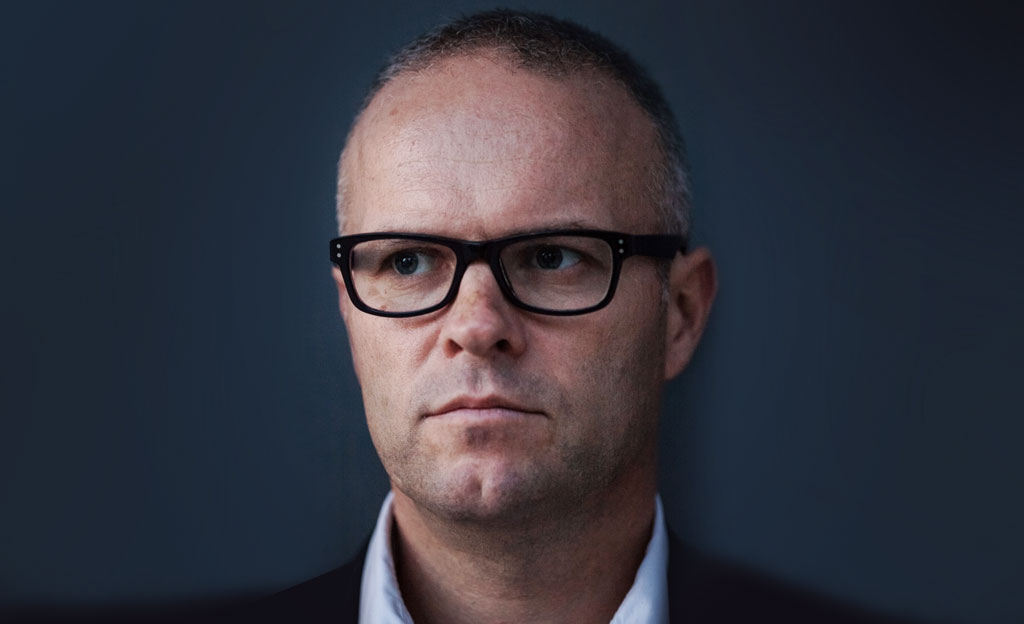
National news , 9 February 2021
Valentina Rubertelli elected President of the Italian Notariat
–
Valentina Rubertelli was elected president of the National Council of Italian Notaries on Saturday 6 February until 2022.
As a notary in Reggio-Emilia, she becomes the first woman to hold this position. In addition, Valentina Rubertelli is also Vice President of the CNUE for the year 2021.

National news, 1 February 2021
Malta – Issuance of secure digital money orders through Blockcerts
–
A new initiative by the Notary’s Office to the Government is the issuing of secure digital warrants through Blockcerts. Blockcerts aims to give Maltese notaries digital warrants for life. Blockcerts can be verified instantly and free of charge, without the need to check with the issuing institution, in this case the Notary’s Office to the Government. These digital identifiers are tamper-proof and therefore reduce the risk of fraud and increase confidence in the title issued. This is achieved by using blockchain technology to verify the authenticity of the digital warrant.
Another advantage of this type of digital mandate is the ease with which it can be shared. This digital mandate can be shared via text, email and even uploaded to social media platforms such as LinkedIn profile, Facebook page, Instagram and even Twitter. The public, including potential clients, can independently verify that the warrants are still active and in good standing, which is an added value, especially for foreign clients.
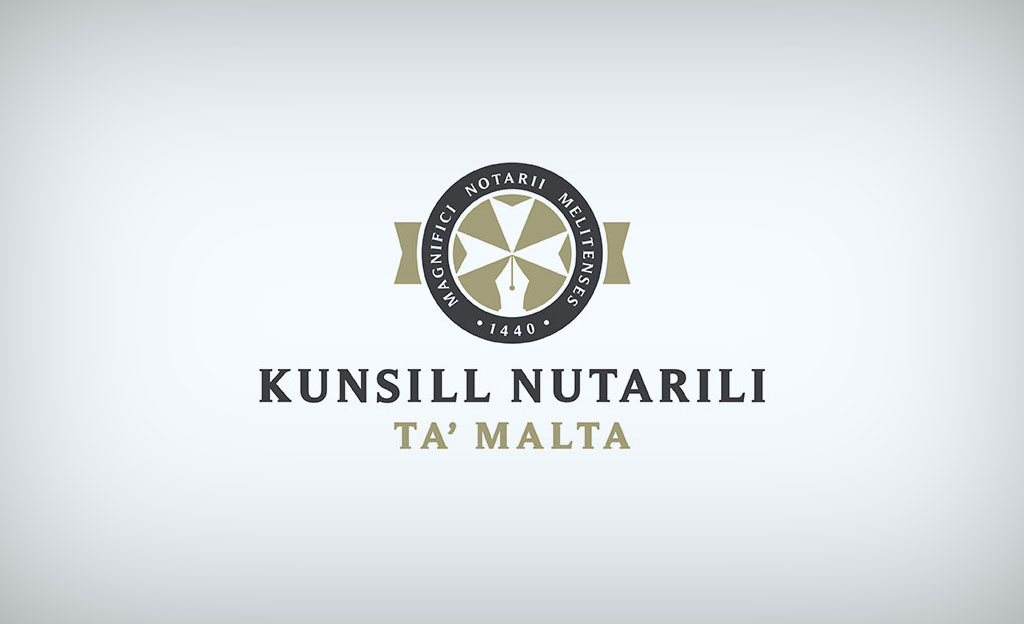
National news, 12 January 2021
New MOOC on disability rights
–
As part of the Just4All project, a massive open online course (MOOC) on disability rights is now online > See the MOOC.
The course is fully accessible to all people with disabilities and is available in English, Spanish and French.
Just4All is a project funded by the European Union’s Justice Programme (2014-2020) which aims to improve access to justice for people with disabilities and thus contribute to the effective implementation of the Charter of Fundamental Rights of the European Union, the United Nations Convention on the Rights of Persons with Disabilities and the European Union Disability Regulations.
In order to achieve these objectives, the institutions participating in this project, which is led by Fundación ONCE in partnership with the European Association of Service Providers for Persons with Disabilities (EASPD), the European Disability Forum (EDF), Thomson Reuters and the Institute of Human Rights “Gregorio Peces Barba” of the University Carlos III of Madrid, have designed this MOOC on the subject, which will be complemented by training with legal professionals through the organisation of different workshops.

Although the MOOC is primarily designed for legal practitioners, including lawyers and notaries, it is also open to a wider audience. Indeed, the course may also be of interest to people with disabilities and experts in the field of disability.
National news, 1 December 2020
José Ángel Martínez Sanchiz re-elected President of Spanish Notaries
–
On 28 November, José Ángel Martínez Sanchiz was re-elected President of the General Council of Spanish Notaries, which represents almost 3,000 notaries. Raimundo Fortuñy Marqués (Dean of the Chamber of Notaries of the Balearic Islands) was elected Vice-President.
The President indicated that the new Council will promote support for people with disabilities, in line with the New York Convention and the forthcoming reform of the Civil Code and the Civil Code of Catalonia. The Council also intends to hold a congress this year to address the issue of the elderly.
It also intends to continue with the implementation of the digitisation of the notarial public service. The General Council intends to work on the possibility for public authorities to execute certain notarial acts remotely by videoconference via an online notarial platform, to which the general public will have access. The aim is that certain common notarial acts can be performed without having to visit a notary’s office. He also wants to give citizens the possibility of having an authentic electronic copy of their notarial deed, which they can take with them on their mobile phone if they wish. Another priority objective will be the response and support offered to entrepreneurs and businessmen, both in terms of setting up and managing their businesses and the decisions they will have to make sooner or later with a view to succession or transfer. Finally, it stresses the need to support cooperation, as recognised by the FATF, in the fight against money laundering and terrorist financing.

José Ángel Martínez Sanchiz has been a notary since August 1979 and has practised in Madrid since March 1983. He has held several institutional positions, having been elected for the first time President of the General Council of Notaries in December 2016. He is also an academician member of the Royal Academy of Jurisprudence and Legislation.
Raimundo Fortuñy Marqués has been a notary since 1987 and has been practising in Calviá, Majorca, since August 1997. He has been re-elected Dean of the Chamber of Notaries of the Balearic Islands three times and has been a member of the Permanent Commission of the General Council of Notaries for two years.
National news, 2 November 2020
News from the European notariats
–
In recent weeks, several presidents of European notariats have been confirmed in their functions or are starting their new responsibilities:
– In Belgium, Me Philippe DE Jonghe, notary in Ostend, has succeeded Me Marc Bombeeck as President of the National Chamber of Belgian Notaries as of 1 September 2020. He will also replace him as Co-President of the International Council of Belgian Notaries.
– In Estonia, Ms Merle Saar-Johanson, notary in Tallinn, was re-elected on 30 October 2020 as President of the Estonian Chamber of Notaries for a three-year term. Mr Erki Põdra, notary in Tallinn, succeeds Mr Anne Saaber as Vice-President.
– In France, Mr. David Ambrosiano, notary in Fontaine (Isère), succeeded Mr. Jean-François Humbert as President of the Conseil Supérieur du Notariat for a two-year term as of 20 October 2020.
– In Lithuania, on 19 September 2020, Mr. Marius Stračkaitis was re-elected as President of the Lithuanian Chamber of Notaries and Ms. Daiva Lukaševičiūtė-Binkulienė was re-elected as Vice President for the term 2020-2023.
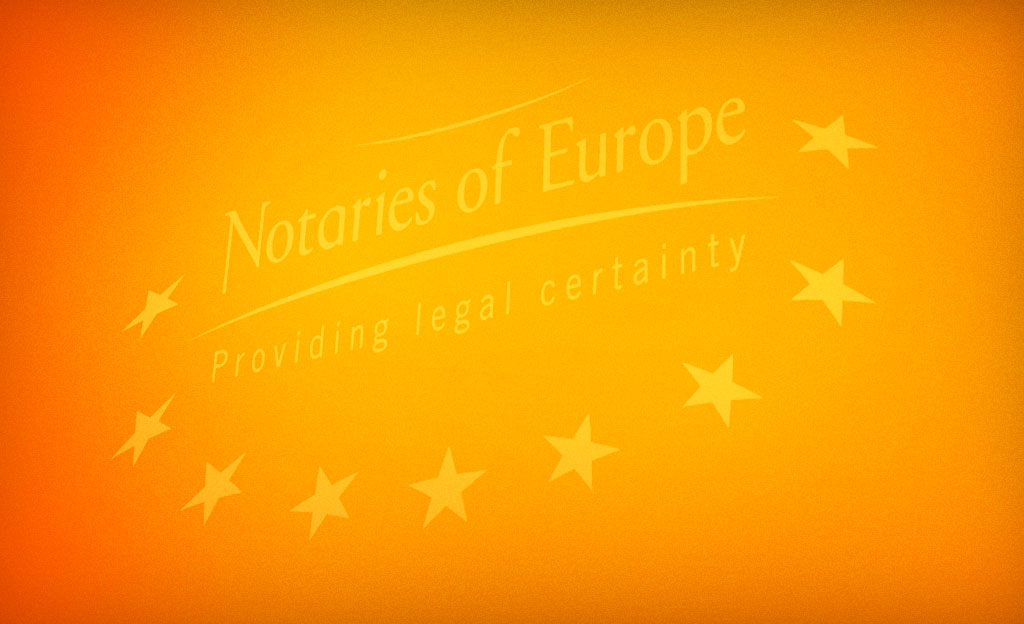
National news, 17 July 2020
CISUR Project – Recommendations on the application of the EU Succession Regulation
–
> The contents of this publication represent the views of the authors and not of CNUE.
The implementation of Regulation (EU) No 650/2012 of the European Parliament and of the Council of 4 July 2012 on jurisdiction, applicable law, recognition and enforcement of decisions and acceptance and enforcement of authentic instruments in matters of succession and the creation of a European Certificate of Succession (hereinafter: the Regulation) has been the subject of research, discussion and training among legal professionals (notaries, judges, lawyers), judicial institutions, chambers of notaries, bar associations and academic communities in both countries) applying the Regulation in Croatia and Slovenia over the past 20 months.
In the framework of the project “Strengthening Judicial Cooperation on the Implementation of the Succession Regulation in Croatia and Slovenia (CISUR)” (hereinafter: the project), “Recommendations on the Implementation of the Succession Regulation” (hereinafter: the recommendations) and “A Guide for the Implementation of the Succession Regulation (EU) No 650/2012” (hereinafter: the guide : Guide) were developed to contribute to a better understanding of the main challenges and problems encountered in practice when applying the Regulation, but also to propose a response to the recognised challenges, and to raise awareness of the need to continue to educate legal practitioners and inform EU citizens; leading to the application of the Regulation in line with its main objective – to facilitate the exercise of EU citizens’ rights in cases of cross-border succession.
The project was carried out by the Croatian Legal Centre (a civil society organisation from Croatia), in partnership with the Ministry of Justice of the Republic of Croatia, the Chamber of Croatian Notaries, the Peace Institute (a civil society organisation from Slovenia) and the Chamber of Notaries of Slovenia, and in association with the Supreme Court of the Republic of Croatia. The project is co-financed by the European Union’s Justice Programme (2014-2020). A special role in the project, consisting of monitoring and evaluating the implementation of the project, has been assigned to the Project Board, consisting of representatives of the project partners and associated institutions: CLC (Vesna Grubić, Director), Ministry of Justice of the Republic of Croatia (Ivan Crnčec, Deputy Minister for the European Union and International Cooperation, Directorate for the European Union and International Cooperation), Croatian Chamber of Notaries (Ljiljana Vodopija Čengić, Notary), Peace Institute (Katarina Vučko, a legal expert), the Chamber of Notaries of Slovenia (Sonja Kralj, President of the Chamber of Notaries of Slovenia), the Supreme Court of the RoC (Damir Kontrec, Judge and President of the Civil Department of the Supreme Court) and the key expert of the project, Professor Emeritus of Law Mihajlo Dika.
The recommendations were based on research on the regulatory and institutional framework for the implementation of the Regulation, and on the current state of play in Croatia and Slovenia, conducted in the first phase of the project. The research included the drafting of a “Desk Research Report on the Regulatory and Institutional Framework for the Implementation of the Regulation in Croatia and Slovenia” and empirical field research developed through semi-structured interviews and focus groups with notaries, judges and lawyers. The research was completed by the elaboration of the “Final report on the research conducted on the implementation of the Succession Regulation in Croatia and Slovenia”.
The main challenges in practice when applying the Regulation, recognised in the recommendations, were related to the following aspects
– the assessment of the “cross-border element” in succession matters ;
– the determination of the habitual residence of the deceased at the time of death as a connecting factor for the determination of the general jurisdiction and the law applicable to the succession as a whole
– the need to make EU citizens aware of the existence of the possibility to settle succession issues in advance, by choosing the applicable law and concluding a choice of court agreement;
– the need to take into account the nature and scope of an authentic instrument in the Member State of origin when establishing its evidential effects in another Member State (and a further reference to “the most comparable effect”);
– the European Certificate of Succession: how to proceed in cases where the content of a decision on succession and that of a certificate are contradictory; the persons authorised to request its issue; the complexity of the form for issuing the certificate; the costs of translating the certificate; the situations of so-called defective certificates (cases where the
Some of the recommendations include
– to consider simplifying the form for issuing the European Certificate of Succession;
– to establish a special register at EU level, as well as national registers, where the time of the introduction of the succession procedure, as well as the course of the procedure, the application, the issue of a European Certificate of Succession and all other circumstances related to a certificate (its rectification, modification, withdrawal and temporary suspension of its effects) would be recorded;
– organise educational activities and training programmes not only for practising notaries, judges and lawyers, but also for other interested parties (lawyers working in banks, pension insurance institutions, etc.).
The research results and recommendations were presented and discussed at the expert meeting held in Ljubljana on 3 December 2019, organised for stakeholders applying the Regulation in Croatia and Slovenia. The meeting was an opportunity for representatives of the judiciary, notaries, lawyers, the Ministry of Justice and academic communities from both countries to exchange their knowledge and experience, and to draw some conclusions mainly corresponding to the recommendations, with a particular focus on the following topics: cross-border succession cases and determination of habitual residence, choice of law, the idea of establishing a special European register of succession procedures and European certificates of succession.
In the second phase of the project, a special guide was developed to facilitate the overall implementation of the Regulation and to integrate the results of the project into professional practice and understanding of the Regulation among members of the relevant professional groups (judges, notaries and lawyers). The guide and teaching materials, including lectures and case studies on the practical application of the Regulation, prepared by the team of education experts in each state, served as the basis for the subsequent training. The pilot training took place on 15-16 May 2020 in Croatia, and on 11-12 June 2020 in Slovenia. After the pilot training, online training courses were scheduled and delivered in each state using the same teaching materials, which remain available to judges, notaries and lawyers in the respective states.
In addition, the document “Information for citizens of EU Member States in case of cross-border succession” was drafted, providing information and instructions to EU citizens, potential heirs in cases of cross-border succession.
The final event of the project – an international colloquium – held online on 3 July 2020, provided an opportunity for the main stakeholders applying the Regulation to discuss the most important recommendations and present their views on future policy actions, in two round tables: I. The creation of a special register at EU level and the Succession Regulation (EU) No 650/2012 and II. Amendments to national implementing legislation and uniform application of the Succession Regulation (EU) No 650/2012 – Croatian and Slovenian perspectives. At the same time, this event provided a link for further cooperation between legal experts and public authorities in the field of implementation of the Regulation, both in Croatia and Slovenia. The international colloquium ended with the adoption of conclusions concerning possible legislative amendments and uniform application of the Regulation on succession. Representatives of the CNUE and the EJN also participated in the colloquium and contributed significantly to its success.
> Download the pdf of information on the project

National news, 28 May 2020
The EMMA MOOC platform: training tools on European law for notaries
–
In the framework of the EuLawInEN project supported by the EU Justice Programme 2014-2020, the Fondazione Italiana del Notariato, the Cassa Nazionale del Notariato, the Bulgarian and Hungarian Chambers of Notaries and the International Association of Judges have published online on the “EMMA” MOOC platform the following e-learning tools, available free of charge:
– an e-learning course entitled “e-REGULATIONS IN PRACTICE”: 18 video lessons of 20 hours in total with downloadable slides, a final test and a bibliography, including a glossary of English legal terminology;
– three sit-coms: providing interactive scenarios with simulated practical cases dealing with the most common real-life situations for the topics considered and requiring player interaction in order to solve the cases in the best possible way through the application of EU law;
– a serious game: comprising different stages aimed at testing, in an interactive and fun way, the knowledge of EU law acquired after participating in the training seminars and watching the video lessons of the e-learning course.
All e-learning resources are in English and adopt the C.L.I.L. (Content and Language Integrated Learning) methodology. They deal with cases and issues related to the application of EU Regulations 650/2012, 1103/2016 and 1104/2016. Access to these materials offers a great opportunity to improve knowledge of the law of succession, matrimonial property regimes and the property consequences of registered partnerships as well as the English language.
This has been done with the support of experienced practitioners dedicated to the development of the technical part of the e-learning tools and selected experts in the field for the scientific content.
> See the instructions for accessing the EMMA platform
> For more information on the EULawInEN project

National news, 18 February 2020
12th Congress of the Spanish Notariat – Malaga, 7-8 may 2020
–
On 7 and 8 May 2020, Malaga will host the 12th Congress of the Spanish Notariat on the theme “Our ageing society: the main challenge of the century”, organised by the General Council of the Spanish Notariat. More than four hundred people are expected to attend, representing all spheres of civil society, especially the legal world.
The conferences and round tables will bring together experts from different fields (health, politics, economics, academia, sociology and law) to discuss an issue that concerns us all.
The importance of the subject is such that, for the first time in the history of the Spanish notary’s office, the congress will be open to institutions and professionals from civil society who can and must contribute their thoughts on what will be one of the most decisive phenomena of this century.
The agenda focuses on three issues: “respect for dignity versus protection of vulnerability”; “living to a hundred: personal planning” and “living to a hundred: social and political planning”.
Although there are many forums dedicated to analysing this topic from different angles, what they all lack is the legal guidance that is essential to properly integrate these issues and enable their implementation in practice, while fully respecting the dignity and freedom of the person.
The Spanish notarial profession is ideally placed to assume the responsibility of promoting an open congress to address the subject, with the aim of meeting this very need. Notaries are the guarantors of the autonomy and civil freedom of individuals in the most decisive aspects of their private lives, both personal and economic. But they are also the ideal witnesses to the internal history of our society and the first to detect many new needs and situations of vulnerability.

